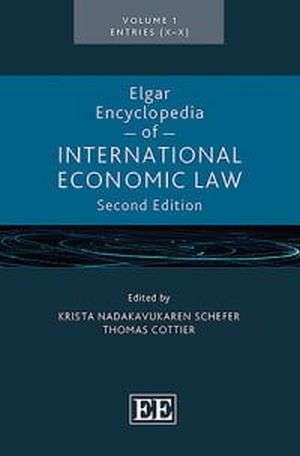
This revised and expanded Encyclopedia is the new benchmark and flagship reference work for the study of international economic law. A comprehensive resource, its pages present the breadth of the field in a real-world context.
Organized thematically rather than alphabetically, the Encyclopedia includes four significant thematic sections: the foundations, architecture and principles of international economic law; regulatory framework; regulatory areas; and regulatory challenges. Including updated and new entries, traditional international economic law topics are now supplemented by coverage of critical perspectives and a broader range of newly developing areas such as taxation, sustainability, and digitalization. Concepts and rules of trade, investment, finance, competition, and international tax law are found alongside entries examining how international economic law impacts on environmental protection, labor standards, development, and human rights.
Embedded within its own legal context, each concise entry presents an accessible and condensed understanding of what it means and why it is significant. Contributors offer insight into how institutions interact with each other and other legal systems, in addition to providing individual overviews of their history, structure, principles and procedures. Entries are followed by selected references suggesting directions for further study.
Completely new to this edition is an entire section of extended entries on specific jurisdictions focusing on how these contribute to and engage with international economic law. These longer pieces describe the national legal frameworks responsible for developing international policies on trade investment, financial regulation, and tax, offering insight into how international rules actually work at the national level.
Key Features: